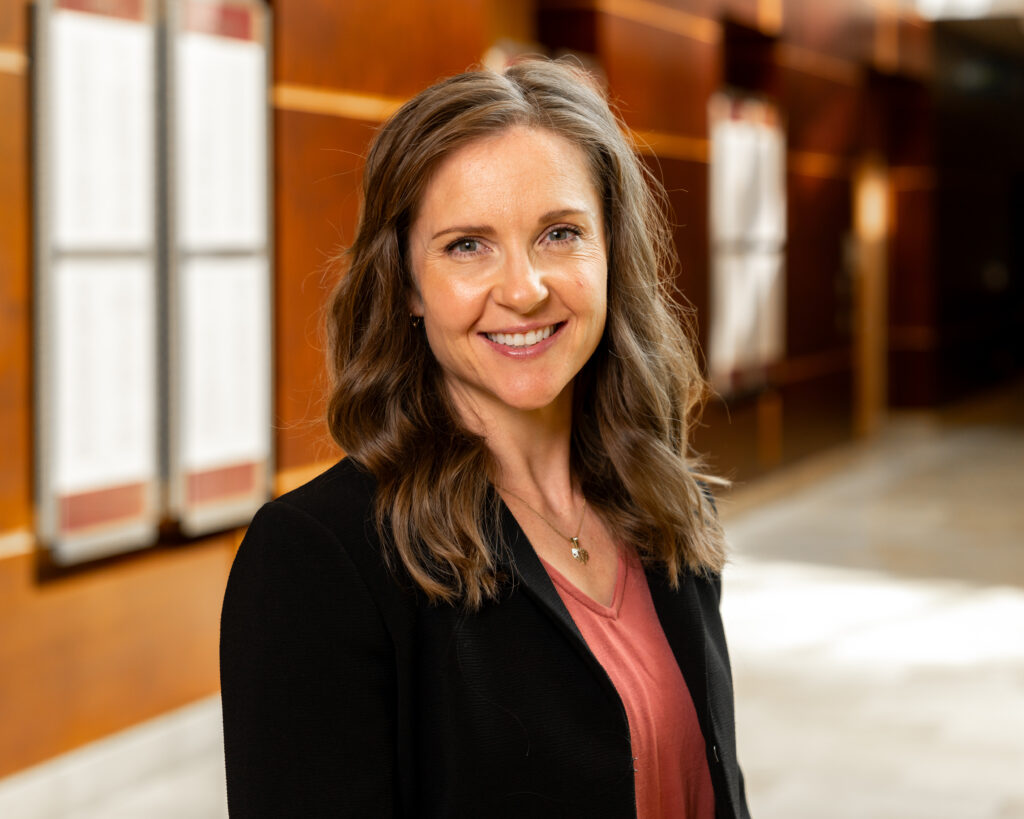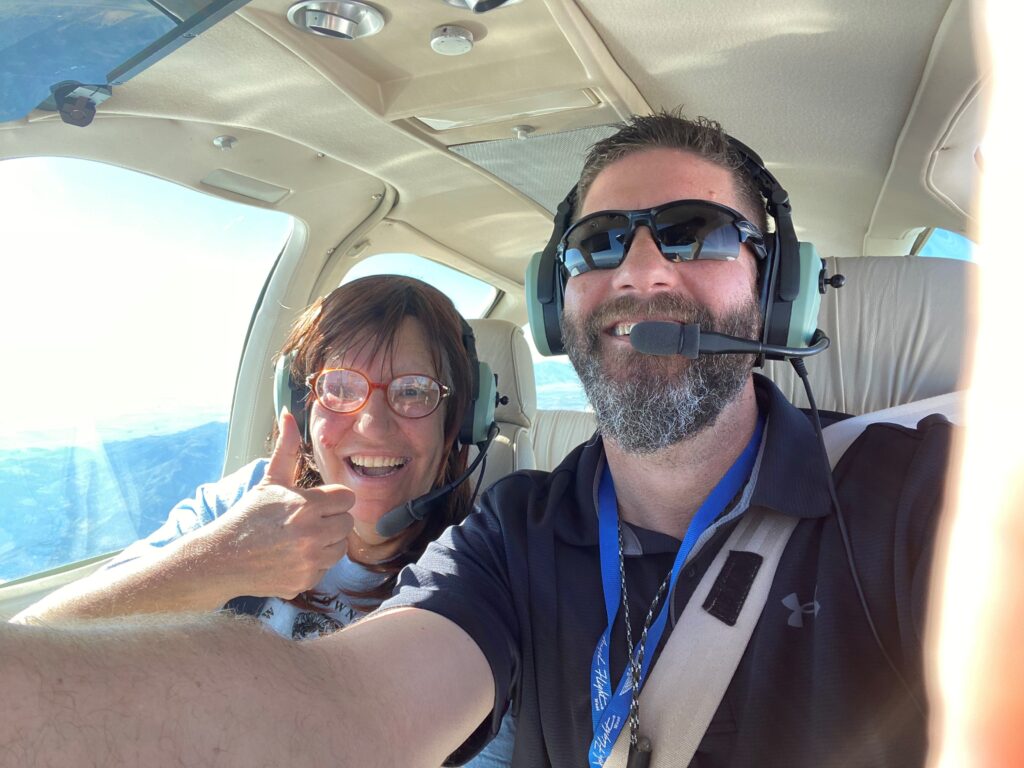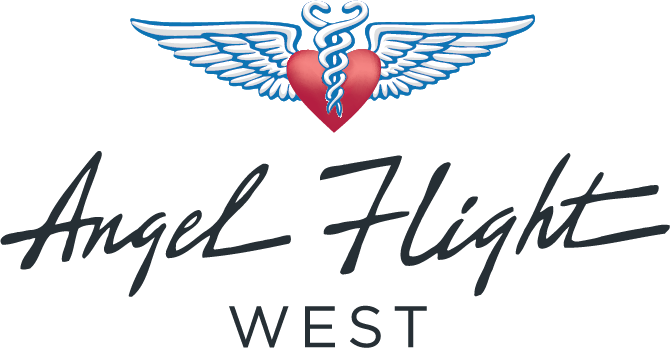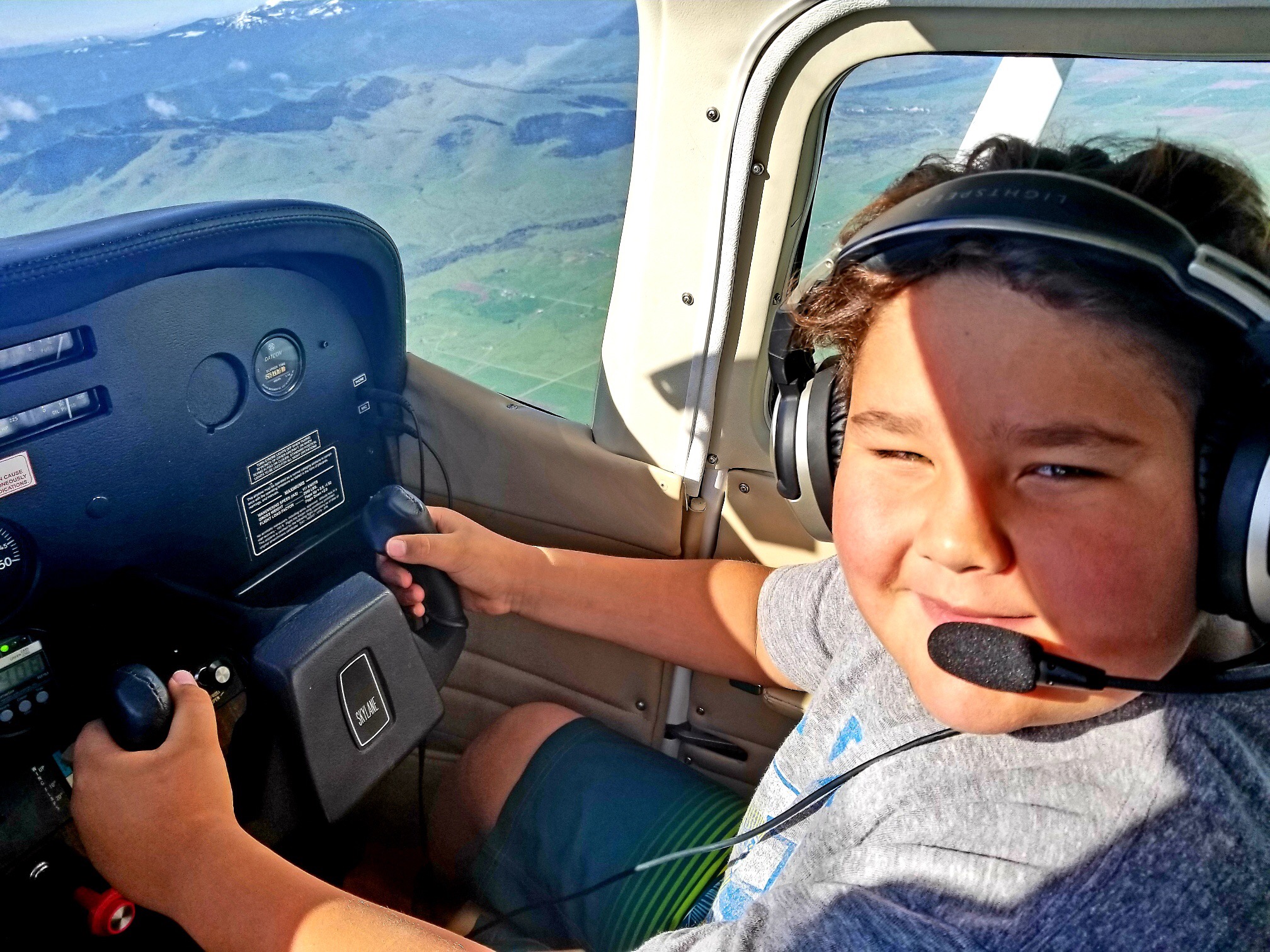Meet our healthcare partner, Amelia. As a part of Huntsman Cancer Institute, she and fellow navigators help connect patients with AFW’s donated flight services. Having grown up in a rural area, Amelia knows the challenges patients face when needing to receive far-off care. We’re grateful to work with compassionate healthcare requesters like Amelia to help more patients on the runway to recovery.

1. Could you tell us about your current occupation? How long have you been working in this position? Why did you become interested in your field?
Huntsman Cancer Institute is the only National Cancer Institute-designated Comprehensive Cancer Center in the Mountain West. By serving Utah, Idaho, Montana, Nevada, and Wyoming, it provides care to the largest geographic region of any center.
Much of this beautiful area is sparsely populated, making it difficult for oncology patients to access specialty cancer treatments. To address this need, the Frontier and Rural Patient Navigation program, originally funded through a grant from the American Cancer Society, opened in 2021. Patient navigators work with patients, their families, and their caregivers to overcome barriers to cancer screening and diagnosis, cancer care, and resources needed during and after cancer treatment. The Frontier and Rural Navigation program at HCI is one of the first in the nation to serve frontier communities. The program currently serves oncology patients from Montana, Wyoming, and rural Utah, with plans to expand to include Idaho and Nevada in 2025.
I grew up in a rural area, and know firsthand the challenges that frontier and rural patients face. As a health educator, I’m passionate about all people having access to high quality medical care. I began navigating patients in January of 2022, and have since helped nearly 300 patients access the specialty care they need.
2. How did you hear about Angel Flight West?
I learned about AFW from my fellow navigators, who have used the services on occasion.

3. How have your experiences requesting flights from AFW been? Without naming patients (if applicable), have there been any particularly impactful experiences that you have had that you would like to share?
The AFW staff have been exceptionally helpful in finding transportation for patients who travel a great distance to reach the Institute. Distance from treatment is one of the most significant barriers that frontier and rural patients face, from the cost for gas, lodging, vehicle wear and tear, and lost wages, to severe weather and road closures. Patients who travel for care may need three days for an appointment that would take a local resident a couple of hours, so having the resources to fly to and from appointments can be a crucial factor in receiving potentially lifesaving treatment.
From the coordinators I speak to on the phone to the pilots who do the flying, I have had nothing but the most positive interactions working with AFW staff and volunteers. They often go above and beyond to make things as easy as possible on the patients I support. I had a Utah patient who had no vehicle to make the 400-mile trip, nor could either he or his wife drive the distance. He would not have been able to have surgery without air transportation.
A Montana patient has set up recurring trips for her regular appointments, saving her the time, money, and stress that travel entails, allowing her to focus on her healing. A patient from Wyoming was a young mother and teacher, and taking two days to travel in addition to her appointment had an enormous impact on her children and students. With AFW, she was able to make the trip in one day.
4. What would you want other healthcare workers or nonprofit partners to know about AFW?
Reliable transportation is fundamental to healthy communities. Frontier and rural patients face worse outcomes than their urban counterparts, due to lack of access for screening and treatment, and being diagnosed in later stages. Addressing this disparity can make the difference between patients receiving care or not, which is critical to improving outcomes for those in rural communities.
By providing access to care, AFW alleviates burdens in ways most of us can’t begin to understand.
If you’re a healthcare worker and want to learn more about requesting flights for patients, please visit our website or call us at (310) 390-2958. You can also email our team at info@angelflightwest.org.

